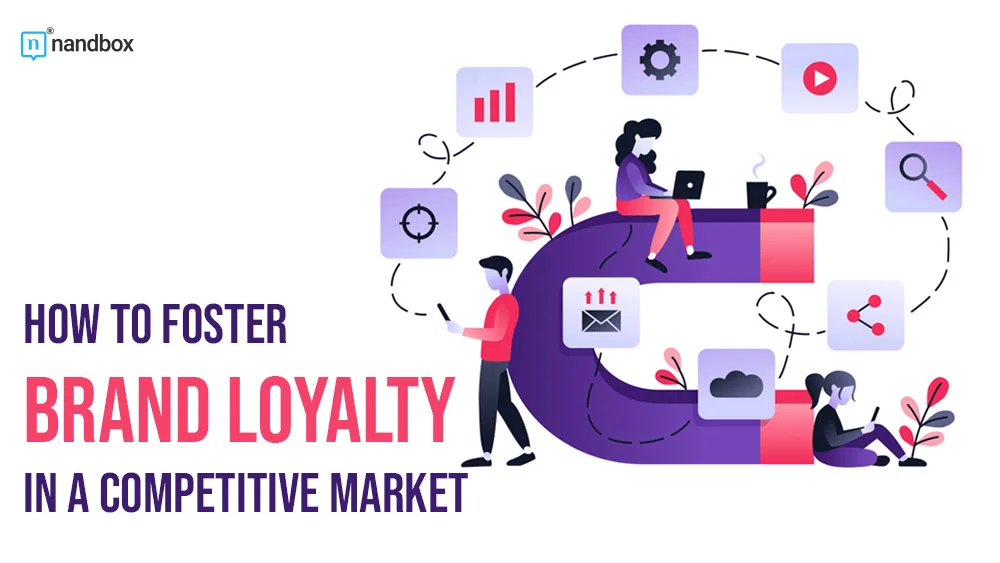Building brand loyalty is essential for companies that want to maintain a strong connection with their customers. When customers feel connected to a brand, they are more likely to return, advocate for the brand, and even pay a premium for its products or services. In today’s competitive marketplace, where consumers have a multitude of options, cultivating brand loyalty is not just beneficial—it is necessary for survival and growth. This article will explore several effective strategies to foster brand loyalty, emphasizing the role of personalized experiences and effective communication.
Understanding Brand Loyalty
Brand loyalty refers to a consumer’s commitment to repurchase or continue using a brand. It transcends mere satisfaction with a product or service; it is built on emotional connections, trust, and positive experiences. Brands that succeed in cultivating loyalty often see benefits such as repeat purchases, increased customer lifetime value, and positive word-of-mouth marketing. This loyalty not only translates to direct sales but can also enhance the brand’s reputation and visibility, making it a more attractive option for new customers.
The process of developing brand loyalty begins with understanding what drives customers to prefer one brand over another. Key elements include perceived quality, brand image, customer service, and emotional connection. Brands that consistently deliver high-quality products or services while fostering a positive emotional experience are more likely to develop a loyal customer base.
Personalization: The Key to Connection
In a market saturated with choices, personalization can be a game-changer. Customers are increasingly drawn to brands that understand their preferences and cater to their needs. Personalization can take many forms, from tailored marketing messages to customized product offerings.
For instance, incorporating personalized gift cards into your marketing strategy can create a memorable experience for customers. Toastycard offers an efficient platform for businesses to create and distribute customized gift cards. This not only enhances customer satisfaction but also strengthens emotional ties to the brand. When customers receive a thoughtful, personalized gift card, they are more likely to associate those positive feelings with the brand that provided it.
Moreover, utilizing data analytics to understand customer behavior can further enhance personalization efforts. By tracking purchase history, preferences, and engagement, brands can tailor their offerings more effectively, ensuring that customers feel recognized and valued.
Consistent Communication and Engagement
Effective communication is essential for fostering brand loyalty. Brands should maintain consistent communication with their customers, whether through newsletters, social media, or direct outreach. Regular updates about new products, promotions, and brand stories keep customers engaged and informed.
Additionally, leveraging visual communication tools can enhance these efforts. Utilizing well-designed presentations can help convey important information engagingly. Slideworks offers professional templates that can elevate your presentations, ensuring that your brand messages resonate with your audience. Clear, impactful presentations can help build trust and authority, further solidifying your brand’s position in the market.
The frequency and quality of communication can significantly impact customer perceptions. Regularly engaging customers through valuable content—such as tips, guides, and behind-the-scenes insights—can create a deeper connection and a sense of belonging to a brand community.
Building a Community
Creating a sense of community around your brand can significantly enhance loyalty. Brands that encourage customer interaction and foster a community atmosphere often enjoy higher levels of engagement. This can be achieved through social media platforms, forums, or even in-person events.
Encouraging user-generated content is a powerful way to build community. When customers share their experiences with your brand, it not only promotes authenticity but also creates a sense of belonging among your audience. Highlighting customer stories on your social media or website can strengthen these connections, making customers feel valued and appreciated.
Additionally, hosting events—both online and offline—can facilitate interaction among customers and the brand. Whether it’s a live Q&A, webinars, or community meet-ups, these opportunities for engagement can create lasting memories and deeper loyalty.
Rewarding Loyalty
Incentives play a significant role in encouraging repeat business. Loyalty programs, discounts, and exclusive offers can motivate customers to return. However, the key is to ensure that these rewards feel meaningful to your customers. For instance, incorporating personalized gift cards into your loyalty program can enhance its appeal.
Rewarding customers for their loyalty should also involve recognizing milestones, such as anniversaries or birthdays. This level of personalization not only shows that you care but also reinforces the emotional connection between the brand and the customer.
Furthermore, loyalty programs should be easy to understand and participate in. Complicated systems can deter engagement, whereas straightforward, value-driven rewards can encourage customers to continue their relationship with the brand.
Providing Excellent Customer Service
Exceptional customer service is a cornerstone of brand loyalty. When customers feel valued and heard, they are more likely to return. Brands should strive to exceed customer expectations by providing prompt responses, resolving issues efficiently, and going the extra mile to create positive experiences.
Empowering your customer service team with the right tools is essential for maintaining high service standards. Training staff to be knowledgeable about products and customer concerns can enhance the overall customer experience. Remember, a positive interaction with customer service can turn a one-time buyer into a loyal advocate.
Moreover, implementing a feedback loop where customers can share their experiences with customer service can provide valuable insights into areas for improvement. By addressing any issues promptly and effectively, brands can reinforce their commitment to customer satisfaction.
Creating High-Quality Content
Content marketing is an effective way to build brand loyalty by providing value to your audience. Offering informative, entertaining, or engaging content establishes your brand as a trusted authority in your industry. This can include blog posts, videos, podcasts, and social media content.
Incorporating a quality link-building service into your strategy can further enhance your brand’s authority by improving search rankings and driving more organic traffic to your site. Creating a content strategy that aligns with your brand’s values and speaks to your target audience is crucial. High-quality content not only attracts potential customers but also keeps existing ones engaged. Regularly updating your content library with fresh, relevant material can enhance your brand’s online presence and credibility.
Leveraging Customer Feedback
Listening to customer feedback is essential for fostering loyalty. Brands that actively seek out and respond to customer opinions demonstrate that they value their customers’ insights. Conducting surveys, monitoring social media mentions, and analyzing reviews can provide valuable information about what your customers appreciate and what areas require improvement.
Implementing changes based on feedback shows customers that their opinions matter. This responsiveness can strengthen the bond between the brand and its customers, encouraging loyalty over time.
Additionally, sharing how customer feedback has influenced your brand can create a narrative that customers feel proud to be a part of. This transparency can build trust and further enhance loyalty.
Staying Authentic
Authenticity is a significant factor in building brand loyalty. Customers appreciate transparency and honesty. Brands that stay true to their values and mission are more likely to cultivate a loyal following. It’s essential to communicate openly with your audience, especially during challenging times.
Being authentic means owning up to mistakes and taking responsibility. When brands admit their faults and show a commitment to improvement, customers are more likely to respect and remain loyal to them. Sharing your brand’s journey, including both successes and failures, can create a relatable image that resonates with customers.
Conclusion
Fostering brand loyalty requires a multi-faceted approach. By focusing on personalization, effective communication, community building, excellent customer service, and authenticity, brands can create meaningful connections with their customers. Additionally, by leveraging tools and platforms that facilitate these strategies—such as personalized gift cards and professional presentation templates—brands can enhance their efforts. Ultimately, a loyal customer base can lead to sustainable growth and success for any brand, transforming one-time purchasers into lifelong advocates. In a world where choices abound, building and maintaining loyalty will be the key differentiator for thriving businesses.





